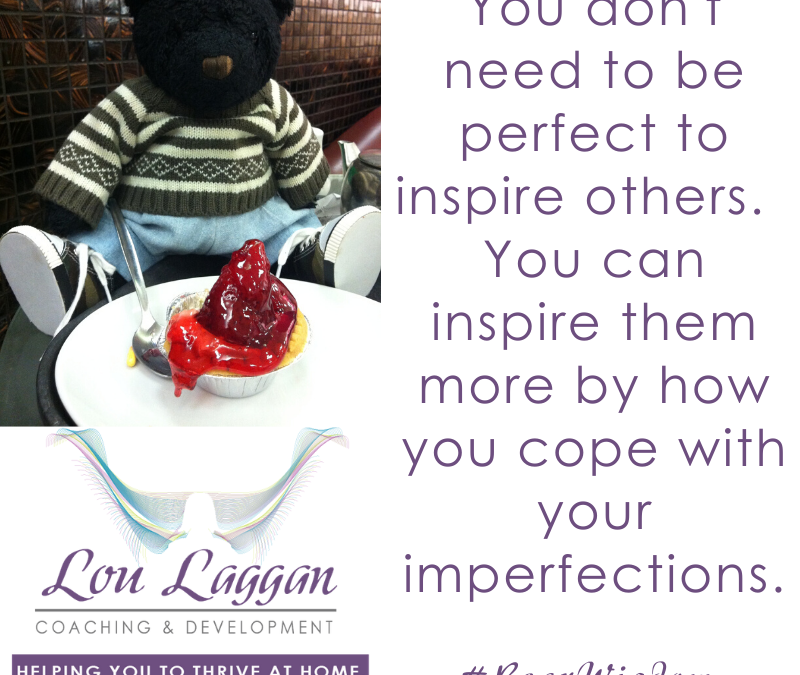NE Life Coach Talks Perfectionism
Perfectionism is either viewed as a positive or it’s taken lightly, something we joke about being. Yet the expectations and stress it places people under means that perfectionism is often very much misunderstood.
In my last blog I shared with you the experiment I had been undertaking to be average and whilst that work continues, I wanted to explore our understanding of what perfectionism is.
What is perfectionism?
It’s not about wanting to be the best. Often it doesn’t involve any comparison with others. Perfectionism is about setting impossibly high standards for ourselves (occasionally for others too but that will be another blog ?). We set the standards so high that we are never able to actually reach them; and this will naturally lead to self-criticism.
Now there is nothing wrong with reviewing and critiquing something that we have worked on. I encourage reflection and self-assessment; yet with perfectionists this becomes unhealthy and unhelpful. If we are constantly telling ourselves that what we have produced isn’t good enough, if when we make a mistake, we see it as catastrophic and a fatal flaw in our character, then we are chipping away at our self-worth. We are basing our self-worth on what we do, what we achieve and also on what other people think of us. Or perhaps that should be rephrased to: what we think other people think of us.
Where did this all start?
It’s difficult to say. I certainly remember this being reinforced in primary school (yes, I can actually remember that far back ha-ha). The message is given and reinforced by parents, teachers, peers, sometimes through religious and cultural beliefs and nowadays, via social media. The message that we should be able to do everything perfectly and effortlessly, to never make a mistake; that anything short of perfection is failure.
Of course, none of our influencers during our early years intended to cause or embed these perfectionist behaviours. They were doing and saying what they did to help us grow and learn, to be able to take advantage of all opportunities that came our way. However well intentioned, this led to a damaging belief..
Perfectionism doesn’t equal success.
Excellence and perfectionism aren’t the same. Perfectionism provides an unrelenting standard that can never be met. It’s about not tolerating mistakes, it’s about a belief that our worth as human beings is completely dependent upon achievements and appearances.
Perfectionism can paralyse us mentally; it’s the enemy of creativity and being able to think outside of the box. Why? Well, as a perfectionist, we become much more interested in doing things perfectly than trying something new. It certainly isn’t a mindset that allows us to take risks.
The result? Burnout, exhaustion and a lack of self -worth along with a very active inner critic.
Perfectionism doesn’t equal likeability.
‘If I’m perfect I will have more friends, be invited to the party, be accepted.’ We may even think of it as a shield that will protect us from rejection.
The reality is very different. Perfectionism creates emotional distance. The connection that we seek brings with it a level of vulnerability, an ability to share who we truly are, flaws and all; we tend to relate to each other because of our flaws.
The other aspect is that if we are constantly striving to make a piece of work perfect, this will naturally take time away from developing and maintaining personal relationships.
Perfectionism equals procrastination.
Have you ever been faced with a task that is so daunting you aren’t sure if you can complete it perfectly? You are capable of doing it but you aren’t sure if you can do it perfectly. That fear of failure holds us back from doing anything when we aren’t absolutely certain that we provide a perfect solution. We become afraid to try anything new and as a result can react very badly to any change.
Perfectionism equals feelings of frustration and inadequacy.
If we are expecting perfection, we will never be satisfied, never fulfilled. We will never be happy with our performance, achievements or appearance because we will only see the imperfections. We will focus on what went wrong, the mistakes, all the ways that stopped something being perfect. It may have been brilliant; we may look amazing but it isn’t perfection so we fell short.
Even if we are successful in achieving our goals there is a voice inside saying “Yes, but you should be able to do that, that isn’t anything special for you, that’s just the basic level you should achieve, why are you proud of it? It isn’t perfect.”
Perfectionism really does fuel our inner-critic and allows it to run wild with ‘should’.
Perfectionists can change!
All is not lost! You don’t have to stay like this forever. Change is possible. Yes, it takes work, it takes commitment and it isn’t easy. It is possible though.
Having dealt with this myself and working successfully with a number of clients I have witnessed the change first hand.
Using a combination of coaching, mindfulness and NLP I’ve been able to support clients in exploring what lies behind the desire for perfectionism; to understand what purpose it serves. After all, all of our behaviours have a positive intention behind them. Once we establish that, we are able to work together to develop more helpful behaviours that still achieve the desired outcome.
It’s worth remembering though that this change itself doesn’t have to be perfect! It’s not an all or nothing approach. Even the smallest of changes to our perfectionist mindset can reap great rewards in terms of our well-being and self-worth.
If you would like to find out more about how to overcome perfectionism, please contact me.
To arrange a free consultation, Contact Lou
Or you can book a free consultation here Online Calendar

Recent Comments